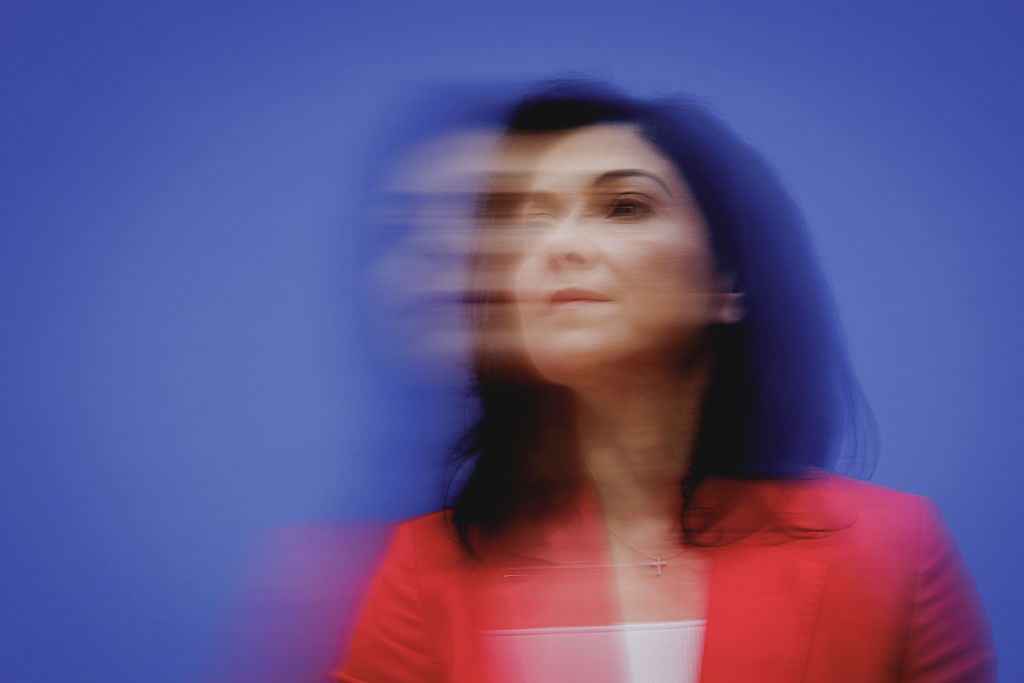The EU’s most effective climate action tool is coming under fire from German industry and political heavyweights as it prepares to enter a tougher new era.
Since 2005, the EU emissions trading system (ETS) has put a hard and gradually lowering cap on emissions from power plants and industrial installations, forcing operators to buy allowances for the CO2 they emit.
It has achieved the holy grail of climate policy: decoupling emissions from economic growth. While the bloc’s GDP has surged, emissions have fallen by around a billion tonnes a year.
Now, the scheme is growing stricter, with fewer allowances, higher carbon prices, and the phase-out of free industry handouts. And German industrialists are mobilising to demolish it.
“The CO2 tax must be abolished! It jeopardises at least 200,000 well-paid industrial jobs in Germany,” the CEO of chemicals firm Evonik, Christian Kullmann, said in a recent interview with daily Frankfurter Allgemeine Zeitung.
“The ETS system feels like a lead vest,” Kullmann said.
End of an era
Two things are happening. ETS allowances are becoming more scarce, with the total volume auctioned decreasing by more than 4% a year. The price of carbon has also more than doubled to €80 per tonne of CO2 or equivalent.
At the same time, free allowances are coming to an end. These were given to domestic heavy industry to shield it from overseas competition, and prevent European companies from relocating abroad to avoid the additional cost.
The handouts will start to disappear next year as the EU rolls out a carbon border adjustment mechanism (CBAM), which will effectively impose a trade tariff based on the estimated carbon footprint of a range of goods imported into the EU. Free allowances will be cut by 2.5% next year, and abolished by 2034.
This change will be felt most acutely in the EU’s heavy-industry powerhouse. The end of free allowances is a “threat to our industry location,” Germany’s Christian Democrat Economy Minister Katherina Reiche said in late September. “We must find a solution quickly in the EU.”
It is perhaps no surprise that Evonik, the publicly listed German chemicals company, said the ETS is becoming a “lead vest”: chemical producers have been allowed to pump CO2 into the atmosphere almost free of charge in recent years. In 2023, the sector received 90 million allowances to help cover its 92 million tonnes of CO2 emissions, according to NGO Sandbag.
Steel and iron received 154 million certificates for free, exceeding their production emissions of 146 million tonnes of CO2 that year.
Cement and lime producers were allocated 108 million for 106 million tonnes of emissions. A welcome windfall because they can be sold on for millions or banked for later years.
Berlin crossroads
Germany, home to much of Europe’s remaining heavy industry, is at a crossroads.
Chancellor Friedrich Merz, another Christian Democrat, has repeatedly stressed that “the CO2 price is to be the central instrument” for EU climate action. But this mantra has become laden with provisos.
“We still have a number of questions to answer… including the question of how long free allowances can be allocated,” said Merz while addressing captains of industry at a speech in September.
In Brussels, one high-ranking official said German heavy industry would be “willing to do anything, even topple CBAM, in order to keep their free allocation of ETS certificates”.
Steelmaker Thyssenkrupp said the ETS “urgently needs to be adjusted” during an ongoing review of the scheme.
The system is currently set to expire in 2039 – a decade before the EU’s 2050 net-zero goal – but the company argues it should be extended to 2050, with free allowances continuing into the 2040s.
Workers’ groups are also worried. “In China, a tonne of CO2 costs only one-seventh of what our companies pay in Europe, and in Japan only one-seventieth,” Michael Vassiliadis, who chairs the influential trade union IG BCE, said in a recent interview with daily Welt.
“There is no emissions trading in the United States at all,” Vassiliadis added. The prominent trade unionist recently called for “continuing the free allocation of allowances for CO2-intensive businesses until alternatives are available at competitive conditions.”
‘Disingenuous’
Sam Van den Plas of Carbon Market Watch, a climate think tank, accused Vassiliadis of being “disingenuous” in his “attack” on the ETS. “German labour unions seem to talk to their CEOs more than their members,” van den Plas said, noting that protecting the climate meant shielding workers.
But even Germany’s Environment Minister Carsten Schneider – of the Social Democrat junior coalition partner, and often at odds with Merz’s Christian Democrats – has come out against the ETS. And the negotiating on the issue in Brussels falls within his purview.
“No more certificates are planned for the chemical industry from 2039 onwards,” he told MPs. “I would like us to clarify the issue of jobs and also the issue of certificates for the period after 2039,” he added.
“We do not have to be climate neutral by then – we want to be by 2045,” Schneider said, to Berlin’s domestic climate target. “By 2050 in Europe.”
All this comes at a testing time for European carbon pricing more broadly, with a political backlash against an incoming ETS2 that targets heating and motor fuels already well underway.
(rh, mm)

